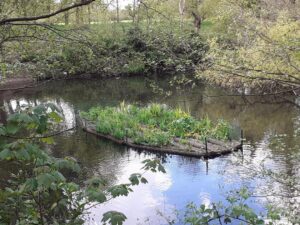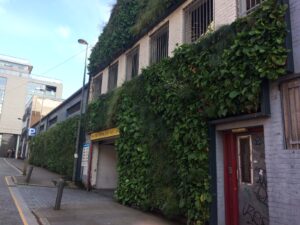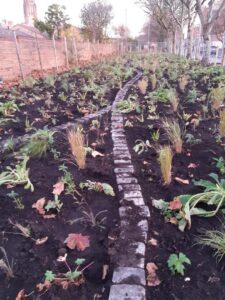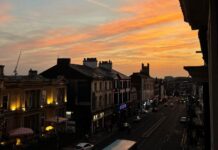An EU project is introducing new green corridors across Liverpool City Region to help tackle climate change.
The URBAN GreenUP project has been awarded nearly £3.5m through the Horizon 2020 programme.
Partners in this five-year innovative project include Liverpool City Council, The Mersey Forest, the University of Liverpool, organisations in Valladolid (Spain) and Izmir (Turkey), and five more cities across the world.

In Liverpool the goal is to connect the city and find nature-based solutions for improving air quality, increasing biodiversity and preventing the risk of flooding.
Strategies include planting trees, introducing green walls or corridors, creating sustainable urban drainage systems and rain gardens.
The Green and Open Spaces report from 2016 highlighted the fact that the city has many derelict sites contributing to a poor environment. These can have a negative impact on a person’s health and wellbeing, as well as the city’s wealth.
Currently three sites have been transformed with the green corridors – the Baltic Corridor, the business and commercial district of the city centre, and the Jericho Lane and Otterspool areas.

The programme has been implementing interventions and techniques, such as tree planting, which are effective in providing shade, coolness and soakaways, and are able to take up excess surface water to help prevent flooding in the future.
Dr Juliet Staples, Senior Project Manager at URBAN GreenUP Liverpool, pointed out that climate change projections in north west England are for warmer wetter winters and hotter drier summers, and that the preservation of green spaces will be important to help the city adapt.
She said: “It’s about introducing lots of different types of greenery and water features into cities to help us adapt to the future predicted impacts of climate change. This in turn creates more pleasant places to live in the future. By linking these green areas together we can also provide accessible routes which enable people to be more active.”
In addition to the environmental benefits of these schemes there are also added social benefits such as improving health and economic benefits such as assisting local regeneration. Improving or introducing high quality green space can have a knock-on effect.”

She added that this project has enabled them to see how best some schemes can be effectively replicated:
“Ultimately for the project it’s about trialling and testing these solutions to help combat climate change and making the business case to do more of this kind of work in the future. make them more pleasant places to live in the future to provide those accessible clean routes and enable people to be more active to help prevent about climate change.
“There’s a whole range of factors that the project will deal with not just climate change such as improving social health and economic issues – regeneration property values go up in the immediate area when green spaces are installed this has a huge knock on effect.”
The Mersey Forest has been actively involved throughout and is the accountable body for the new green recovery fund of £1.3m.
Up to £170,000 of additional funding has been made available to Liverpool to make space for nature and to replicate some of the URBAN GreenUP success stories.










